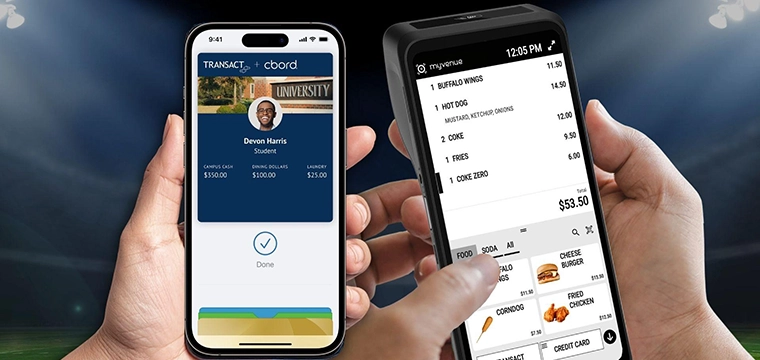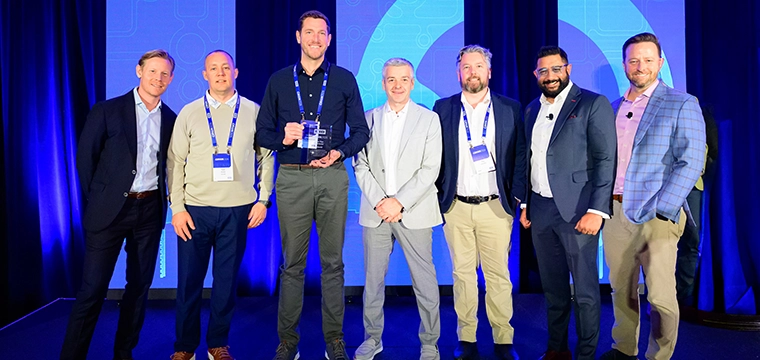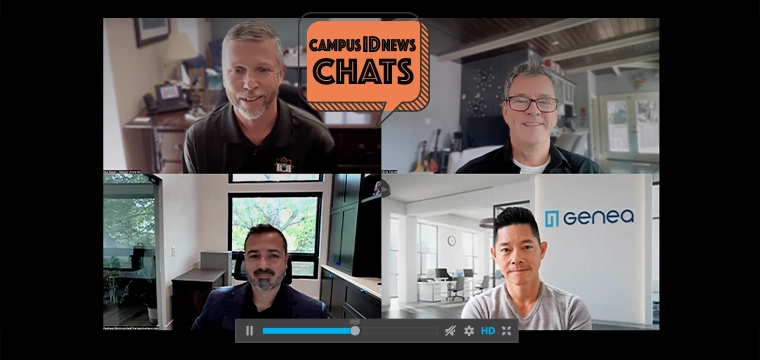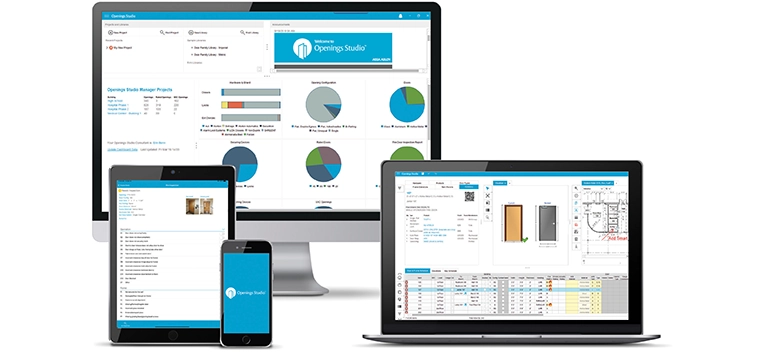
System of record facilitates renovations, maintenance, warranty management, and budgeting
For higher education institutions, managing access to thousands of doors across campuses has always been a daunting task. Universities often have 1,000, 5,000, 10,000 or more access control readers. For full visibility into the environment, each access point requires detailed tracking of location, hardware, firmware versions, and maintenance needs.
ASSA ABLOY’s Openings Studio is designed to streamline this process, enabling universities to manage their access control systems more efficiently and plan for the future.
To better understand how Openings Studio works and the benefits it can deliver for campus card and security operations, CampusIDNews spoke with Ryan McLachlan, Senior Director of Openings Studio Building Technologies at ASSA ABLOY, and Jeff Rindlisbacher, Director of the same division.
When managing their physical access systems, universities face a complex web of data points. Every component requires careful documentation, from wireless locks and readers to physical door components like strikes and frames. But for most organizations, this documentation is fragmented at best.
If there’s an issue at a door – say a card isn’t working – you already have detailed information before sending someone out. That way, you’re not wasting time on a separate trip just to assess the situation.
According to McLachlan there is enormous value in creating a centralized database to track these assets.
While Openings Studio is ideal for managing data for door access points, it was not designed to support other security infrastructure such as cameras, intrusion, panic or duress systems. Another solution called SiteOwl, however, is designed to capture all this additional component data. ASSA ABLOY acquired SiteOwl to complement its Openings Studio solution. Learn more about SiteOwl here.
“Being able to document all of your existing security devices is critical,” he says. “Openings Studio has always been strong on door-centric applications, giving you the ability to collect and manage opening data at a detailed level.”
It goes beyond simple documentation by providing actionable data. Campuses can leverage the platform to align future projects with existing infrastructure, ensuring they make informed decisions about replacements and enhancements.
“It’s all about understanding what’s in the field and where it’s at from a lifecycle perspective,” he explains. “It lets you intelligently plan for upgrades or for bringing new buildings online.”
Openings Studio is a web-based platform with mobile capabilities, making it accessible to teams both on-site and in the field. Field staff can use tablets or smartphones to gather data during site visits, conduct inspections, or troubleshoot issues in real time.
This functionality is beneficial when responding to maintenance calls. Before dispatching a technician, the system provides a complete record of the affected door, ensuring the right tools and parts are brought to the job.
NFC chips or QR codes are attached to doors during installation, upgrades, or as a part of the cataloging process. Scanning these tags reveals key information like the building location, hardware set, and access credentials.
“If there’s an issue at a door – say a card isn’t working – you already have detailed information before sending someone out,” McLachlan explains. “That way, you’re not wasting time on a separate trip just to assess the situation.”
The platform integrates smart tags, such as NFC chips or QR codes, that are attached to doors during installation, upgrades, or as a part of the cataloging process. Scanning these tags reveals key information like the building location, hardware set, and access credentials. Users with higher permissions can even view detailed work history, specifications, and even installation or programming instructions directly from the mobile app.
According to Rindlisbacher, this feature reduces confusion and accelerates problem resolution.
“All the collateral is there at your fingertips,” he says. “It’s about having everything you need in one place, whether you’re maintaining existing doors or working on new construction.”
For campuses migrating to mobile access, Openings Studio provides a perfect opportunity to capture and organize data during the process.
“Large-scale initiatives like a mobile credential rollout are the ideal time to begin collecting detailed door data,” McLachlan explains. “Since you’re already visiting every reader, it makes perfect sense to capture that information in the most organized way possible.”
Universities can create custom inspection templates within the software to track pilot programs or test specific hardware. For example, a school might add fields to confirm whether a door successfully reads the new mobile credentials. This data is easily reportable and can help administrators identify problem areas before a full-scale launch.
Large-scale initiatives like a mobile credential rollout are the ideal time to begin collecting detailed door data. Since you’re already visiting every reader, it makes perfect sense to capture that information in the most organized way possible.”
Even when teams are on-site for a specific project, they can take more time and gather additional valuable data.
“It might start with a rekeying initiative, but while we’re there, we can capture information about fire-rated openings, card readers, and more,” Rindlisbacher says. “That extra data benefits other departments down the road.”
The platform also simplifies project tracking for construction and renovation efforts. The project team can monitor whether hardware has been delivered, installed, and quality-checked before final turnover. By providing transparency across stakeholders – from architects to general contractors to university security teams – Openings Studio can ease the workflow from start to finish.
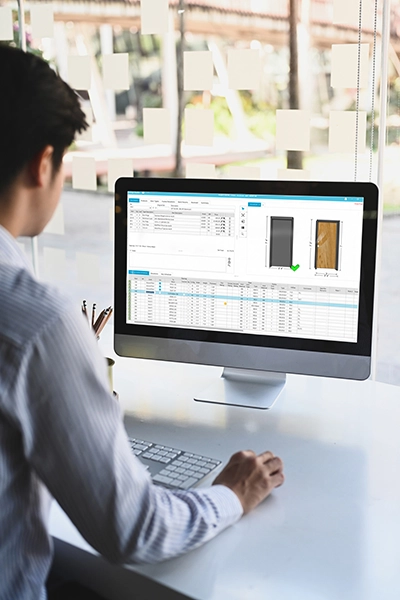
Universities can use Openings Studio independently or have ASSA ABLOY’s consulting team test credentials and document the components and status of every door and reader
The platform’s non-proprietary database supports hardware from multiple manufacturers, making it flexible for campuses with diverse systems. It also integrates with popular building design solutions, ensuring seamless collaboration between architects, contractors, and campus security teams.
While universities can use Openings Studio independently, many choose to bring in ASSA ABLOY’s consulting teams for large-scale projects. These specialists conduct conditional assessments, test credentials, and document the components and status of every physical opening and access device. For campuses with limited staff, outsourcing this work ensures accuracy and reduces the burden on internal teams.
McLachlan emphasizes that successful implementations require thinking beyond immediate needs.
“There’s often one initiative driving the project, but we always look for additional valuable data points while we’re in the field,” he said. “It’s about planning ahead and understanding the full lifecycle of your security systems.”
Managing thousands of doors and access control devices is challenging for any university, but Openings Studio offers a comprehensive, scalable solution to facilitate the process. By centralizing data, streamlining maintenance, and supporting future initiatives like mobile credential migrations, the platform empowers campus card and security teams to work smarter and more efficiently.
“Ultimately, it’s about providing transparency and future-proofing your operations,” McLachlan concludes. “When you have the right data at your fingertips, you can make better decisions and ensure your campus is ready for whatever comes next.”
